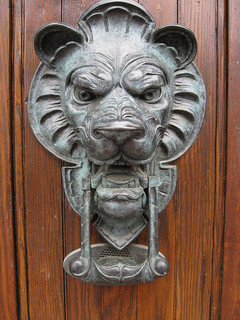 In the physical world we know what privacy is and how it works.
In the physical world we know what privacy is and how it works.
We know because we have worked out privacy technologies and norms over thousands of years. Without them we wouldn’t have civilization.
Doors and windows are privacy technologies. So are clothes. So are manners respecting the intentions behind our own and others’ use of those things. Those manners are personal, and social. They are how we clothe, shelter and conduct ourselves in the world, and how we expect others to do the same.
The Internet is a new virtual world we also inhabit. It was born in 1995 with the first graphical browsers, ISPs, email and websites. It arrived in our midst as a paradise. But, as with Eden, we walked into it naked — and we still are, except for the homes and clothing we get from companies like Google, Amazon, Facebook and Apple. They clothe us in uniforms, one for every login/password combination. Who we are and what we can do is limited by what they alone provide us. Yes, it’s civilized: like the middle ages. We toil and prosper inside the walls of their castles, and on their company lands. In many ways the system isn’t bad. In many othr ways it’s good. But it isn’t ours.
To have true privacy in the networked world, we need to be in charge of our own lives, our own identities, our own data, our own things, in our own ways.
We should be able to control what we disclose, to whom, and on what terms.
We should be able to keep personal data as secret and secure as we like.
We should be able to share that data with others in faith that only those others can see and use it.
Our digital identities should be sovereign — ours alone — and disclosed to others at our discretion.
(True: administrative identifiers are requirements of civilization, but they are not who we are, and we all know that.
Think of how identity works in the physical world. It’s not a problem that my family members call me Dave, the government calls me David, other people call me Doc — and the rest of the world calls me nothing, because they don’t know me at all.
This is a Good Thing. It is enough to recognize each other as human beings, and to learn people’s names when they tell us. Up to that point we remain for each other literally anonymous: nameless. This is a civic and social grace we hardly cared about until it was stripped from us online.
In the physical world, companies don’t plant tracking beacons on people, or follow them around to see who people are are, where they go and what they do — unless they’ve been led by the hideous manners of marketers who believe it’s good to do that.
Those manners won’t change as long as we don’t control means of disclosing our selves and our data. Until we have true privacy, all we’ll have are:
- Crude prophylaxis, such as tracking and advertising blockers
- Talk about which companies screw us the least
- Talk about how governments screw us too
- Calls for laws and regulations that protect yesterday from last Thursday
We won’t get true privacy — the kind we’ve known and understood offline since forever — until we have the online equivalents of the clothing, doors and manners.
All we’ll get from most big companies are nicer uniforms.
I look forward to what we’ll get from the Barney Pressmans of the online world. Here’s a classic ad for Barney’s (his clothing store) that ran in the 1960s: http://youtu.be/KMIgu9-zd8M. (Just watch the first one, which ends :47 seconds in.) That’s where my headline came from.
Leave a Reply